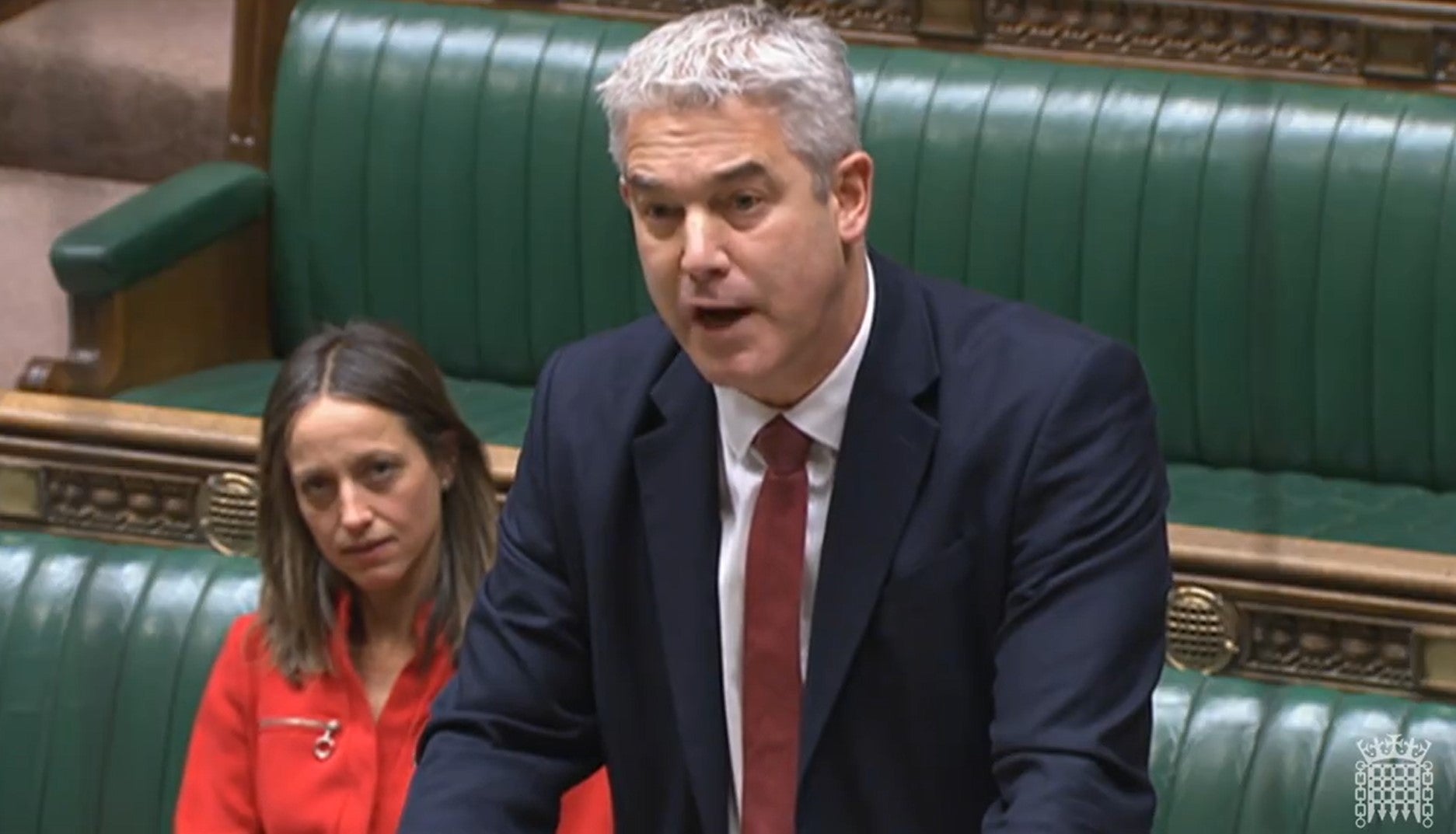Inside Politics: ‘Cold hard cash’
Government considering two options to break strike deadlock as ministers introduce ‘minimum service level’ bill, and positive noise from latest Brexit negotiations, writes Matt Mathers


Hello there, I’m Matt Mathers and welcome to The Independent’s Inside Politics newsletter.
Prince Harry has been kidnapped by a “cult of psychotherapy”, royal sources say. Let’s hope Tory MP Andrew Bridgen doesn’t fall down any more Covid-related worm holes during his five-day suspension from parliament.
Inside the bubble
Chief politics commentator John Rentoul on what to look out for:
Cabinet meets this morning for the first time this year, and we are likely to be briefed that it discussed the NHS. Health Education England will announce another record year of doctor recruitment, and Steve Barclay, the health secretary will then visit a 111 call centre to provide photos to underline the message: “Please don’t dial 999.”
The Commons sits from 11.30 starting with Justice questions (10 points if you remembered that Brandon Lewis is justice secretary), and legislative business is the remaining stages of the bill to cut stamp duty, the last remnant of Liz Truss and Kwasi Kwarteng’s tax cuts.
On the committee corridor, the Environment, Food and Rural Affairs Committee holds the last session in its inquiry into whales, dolphins and other marine mammals with ministers Lord Goldsmith and Lord Benyon at 2.30.
Daily briefing
Progress?
So where do things stand on strikes following talks yesterday between ministers and union bosses? The slightly more convivial tone taken by Rishi Sunak on Sunday appeared to continue into the meetings and pay for this year was discussed.
Although this was seen as “progress” by one union official representing health workers, there was no offer of “cold hard crash”, and so planned strikes by ambulance staff tomorrow and nurses again later in the month look set to go ahead.
The government is now said to be considering two main options to break the deadlock. The first, as Inside Politics mentioned in yesterday’s email, is a lump sum payment to help workers through the winter months. A source close to Steve Barclay, the health secretary, told The Independent that a one-off payment had been raised by the unions and was being “looked at”. The second, meanwhile, is backdating pay. The main purpose of the talks yesterday was to discuss pay for the next financial year: under the plan, whatever is agreed upon could be backdated to this month.
Barclay came under a bit of fire from health workers and unions after suggesting they would have to work harder to justify any increase in their pay, saying he wanted to see greater “productivity and efficiency” from staff. “This isn’t a factory we’re talking about,” Onay Kasab, a negotiator for the Unite union, hit back. “We’re talking about people who are working well beyond their contracted hours anyway.”
As promised last week, the government will press ahead with its plan to introduce strike laws that would require “minimum services levels” in certain sectors during walkouts. Ministers will introduce a bill to parliament later today, which is expected to cover workers in the education, health, transport, nuclear and border security sectors.
Grant Shapps, the business secretary, out on the broadcast round this morning, said the legislation would demonstrate “life and limb must come first” when strike action takes place. “I’ll be introducing a minimum safety level bill, which will sort of say, ‘look, we will never withdraw the right to strike from people but when there are strikes on life and limb must come first, and there has to be a minimum safety standard put in place for that’”, he told GB News. “We don’t really ever want to have to use that legislation.” Unions say they will challenge the legislation.

Enjoying this newsletter?
Unlock unlimited, ad-free reading on the website and in The Independent app when you subscribe – plus, benefit from our welcome offer when you join today.
Brexit latest
If news about strikes is starting to feel a bit like Groundhog Day, then how about some Brexit? You can’t say that we don’t treat you. The seemingly never-ending quagmire over Brexit’s Northern Ireland protocol could be, well, drawing to a close.
There were some very positive noises coming from both camps yesterday following talks between the EU and UK on NI’s post-Brexit trading arrangements.
James Cleverly, the foreign secretary and Chris Heaton-Harris, the NI secretary, met Maros Sefcovic, the EU Commission vice-president in London.
Both sides later hailed an agreement in the area of data-sharing and EU access to British IT systems, which could lessen the need for checks on goods entering NI – a red line for unionists.
A joint statement, issued after the meeting, described it as “cordial and constructive”. It added that officials in London and Brussels would now “work rapidly to scope the potential for solutions in different areas on the basis of this renewed understanding”.
On the record
Sara Gorton, Union’s head of health, on yesterday’s strike talks.
“So it is progress, but it isn’t significant until we match the new tone with some cold hard cash.”
From the Twitterati
Alex Wickham, Bloomberg reporter, on mortgage costs.
“This is probably the most underplayed story in British politics: thousands of usually Tory voters in modest homes in the south-east are gonna be paying ~£3,000 per month in mortgage payments come the end of the year. Then thousands more will the following year, and the next.”
Essential reading
- Tom Peck, The Independent: The NHS doesn’t just need beds. It needs people
- Marie Le Conte, The Independent: No leaks, insider stories or catfights – what’s happened to politics?
- Max Hastings, The Times: It’s time for realism about our armed forces
- Alex Hochuli, UnHerd: This was not Brazil’s January 6
Inside Politics first appeared in our daily morning email. You can sign up via this link.






Join our commenting forum
Join thought-provoking conversations, follow other Independent readers and see their replies
Comments